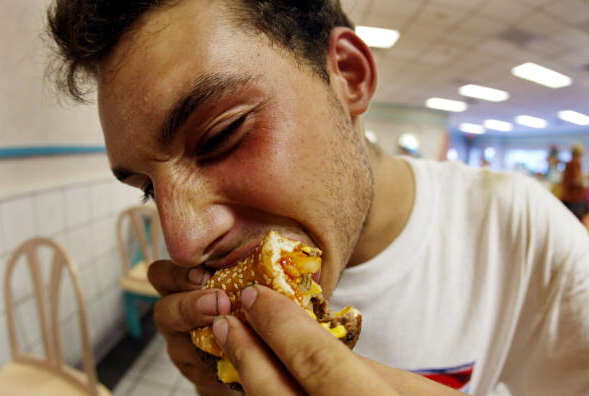By Angel Soleil, | September 29, 2016

Scientists say there is no such thing as stress-eating.
A new study argues that stress-eating may only be a myth as little correlation has been found between stress and the quantity of food a person consumes.
A study about stress-eating published in the journal "Biological Psychology" found that people who were stressed ate less as compared to people who were not.
Like Us on Facebook
Fifty-nine participants were tested over a span of 10 days to track how stress manipulated their appetite. After filling out a questionnaire to determine their eating style, they used an app to record their stress level, emotional state, and the food they have eaten for five consecutive days.
To determine if they were "stress-eating," the participants were asked to indicate how much of the food they ate was influenced by either hunger, time constraints, want (not need), as well as if it was a meal or a snack.
After the 10-day experiment, researchers found that the participants did not stress-eat but they actually "happy-ate." The data gathered in the study suggests that negative emotions influenced people to eat less, and eat for no other reason than hunger. What influences people to eat even if they did not feel hungry was the feeling of positive emotions.
The findings of the study not only indicates that stress-eating is only a myth, but it also explains why people tend to center celebrations on food.
-
Use of Coronavirus Pandemic Drones Raises Privacy Concerns: Drones Spread Fear, Local Officials Say

-
Coronavirus Hampers The Delivery Of Lockheed Martin F-35 Stealth Fighters For 2020

-
Instagram Speeds Up Plans to Add Account Memorialization Feature Due to COVID-19 Deaths

-
NASA: Perseverance Plans to Bring 'Mars Rock' to Earth in 2031

-
600 Dead And 3,000 In The Hospital as Iranians Believed Drinking High-Concentrations of Alcohol Can Cure The Coronavirus

-
600 Dead And 3,000 In The Hospital as Iranians Believed Drinking High-Concentrations of Alcohol Can Cure The Coronavirus

-
COVID-19: Doctors, Nurses Use Virtual Reality to Learn New Skills in Treating Coronavirus Patients







